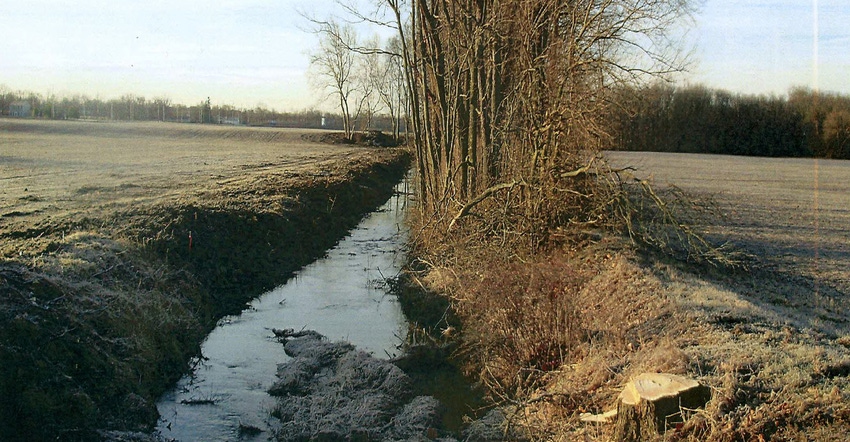October 30, 2020

Editor’s note: Earlier stories chronicled Steve Slonaker’s efforts to clean the second half of a ditch on his property in Wayne County, Ind. He cleaned the first half in 2017. In 2020, he was fined by the Indiana Department of Natural Resources for commencing work in 2020 without a permit, although he had approvals from local officials. He paid the fine and paid the permit and soon will complete the work. He is speaking up about the problems many landowners and towns are facing since DNR stepped up efforts to control activities in areas they perceive as floodways under a recently prepared floodways map. Slonaker’s goal is to encourage the governor and Legislature to remedy the situation. In the meantime, DNR and the Indiana Department of Environmental Management offer a joint website where you can begin the process of determining if you need a permit. Find it at in.gov/waterways.
I have spent the last year looking at the Indiana Department of Natural Resources website, and I find it very confusing, with many non-ag-friendly terms. I can show you in detail.
A farmer must evaluate the project that maybe meets three criteria, but not all five requirements. From a practical standpoint, how many operators want to apply for a government permit, which takes many hours, and pay $200 to $300 for the permit?
Plus, you must notify every neighbor by certified mail for approval and wait. Based on my experience, there may be multiple calls to state officials with questions on things that just aren’t clear in farmer terminology on the website.
In some cases, a fish and wildlife study may be required in the permitting process. You may need to hire an engineering firm. If you’re lucky, you may get a permit in four to six months, and it’s all for two days’ worth of work on the actual project.
It’s not just me. Other farmers and landowners I’ve talked to are finding out that their county and small town building and zoning offices are required to monitor farm operations for drainage work permits. Conservation officers are authorized to do the same thing.
I’ve interviewed many county zoning officials, and they just shake their heads. Activists who don’t favor farmers can call DNR with anonymous complaints about trees or owls, and farmers can’t respond and don’t get to know who they are. This is a slippery slope and broken system.
I wasn’t looking for a cause to promote or looking for a fight. I just wanted to clean my ditch so that it does what it was designed to do. I had county approval, and I believed I was doing it legally.
DNR officials said otherwise. So, now I am bringing this to everyone’s attention, because I believe this needs to stop. Farmers are the original environmentalists.
I have assembled several case studies with specifics about other instances where landowners are hung up in red tape for far too long. There is usually only a limited amount of time in any one year to do this type of work. As current laws are enforced, it’s very frustrating, if sometimes not impossible, to carry out these projects. That’s not right.
Slonaker owns and operates a farm in Wayne County, Ind., and manages farms in Indiana, Ohio and Michigan.
You May Also Like




